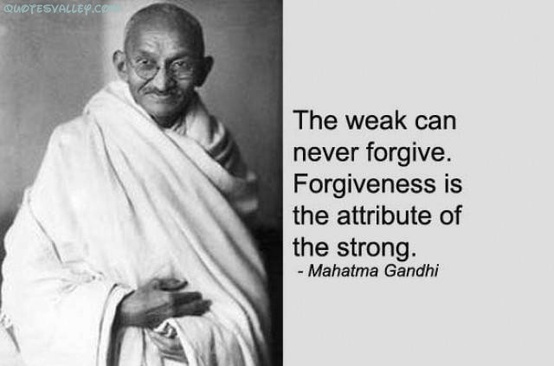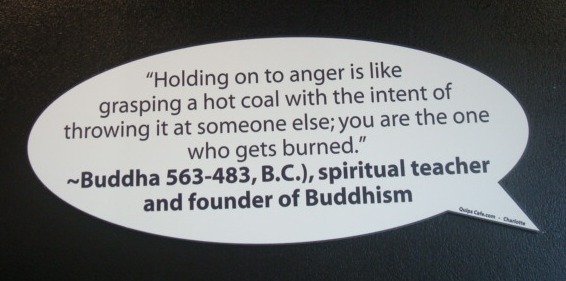 From time to time I come across someone who claims the Bible is boring. Or they’ll say it is outdated. Or it’s not relevant for today. I always smile when I hear such things. At first glance, I can understand why they say that. After all, it was written thousands of years ago. For some reason, we tend to think that “new” is exciting while old (material, books, movies, people) is boring and without relevance. With that mentality, we miss out on some gems simply because something was filmed in black and white, printed before 1950 or has more wrinkles than we have.
From time to time I come across someone who claims the Bible is boring. Or they’ll say it is outdated. Or it’s not relevant for today. I always smile when I hear such things. At first glance, I can understand why they say that. After all, it was written thousands of years ago. For some reason, we tend to think that “new” is exciting while old (material, books, movies, people) is boring and without relevance. With that mentality, we miss out on some gems simply because something was filmed in black and white, printed before 1950 or has more wrinkles than we have.
The skeptics may own a Bible but it sits on their shelf with dust on it. If you think the Bible is boring, it merely confirms that you have never read it. The Bible has more action than a Hollywood film. It has more drama than a Real Housewives episode. It has more romance than a Nicholas Sparks novel. The Song of Solomon would make 50 Shades of Grey blush. And though there are no “punch lines” per say, it certainly has its share of humor. The content could produce dozens of blockbuster movies. Mel Gibson’s Passion of the Christ movie proved that. Focusing on the last 12 hours of Christ’s life, the film has become the highest grossing R-rated film of all time. (Yes, the Bible is R-rated).
For those of you out there who have never read the Bible, I thought I would take a moment to highlight some of the more exciting stories found in the old Book. I included their specific reference so you could read it for yourself. Most of the stories are truly unbelievable. It is for this reason that the Bible will not let you approach it without the faith of a child.
For the record, it is always best to read a passage in context and try to understand the author’s intent in each “book.” Greater light is shed on a passage when you understand the historical context surrounding it. Reading the New Testament with 21st century eyes can sometimes make a passage confusing if you do not understand the 1st century background when it was written. For example, Jesus tells His disciples in Matthew 5, “Whoever forces you to go one mile, go with him two.” What a modern-day reader may not understand is in Galilee the law stated that a Roman soldier could force a Jew to carry his military pack up to one mile. By law, a Jew had to obey this request. Jesus was teaching servant leadership. He was showing His students the high calling of Christianity in practical, everyday terms. If one of His disciples found themselves in a position where they were forced to carry a soldier’s bag one mile, Jesus told them to carry it two. Any pagan can walk the first mile by law. A Christian desiring to impact the world willingly carries it two by grace. It is from this passage and command that we get the phrase, “Go the extra mile.” Many people are familiar with the phrase. Only the Biblically educated understand where it came from.
Having said this, where else can you find a book that has all these components under the same cover?
- A talking serpent (Genesis 3)
- Murder (Genesis 4)
- 900 year old men and people who never died (Genesis 5, II Kings 2)
- A global natural disaster (Genesis 6-7)
- The meaning of rainbows (Genesis 9)
- Incest (Genesis 19, II Samuel 13)
- Someone turned into a pillar of salt. (Genesis 19)
- Lying (Genesis 20)
- Betrayal (Genesis 27)
- Revenge (Genesis 27)
- Wrestling with God (Genesis 32)
- Rape (Genesis 34, II Samuel 13)
- Plots to kill (Genesis 37)
- Interpreted dreams (Genesis 40-41)
- Hostage situation (Genesis 42)
- A burning bush that talks (Exodus 3)
- Parting the waters of the Red Sea (Exodus 14)
- A log making water drinkable (Exodus 16)
- Food that drops from Heaven (Exodus 16)
- Water that comes out of rocks (Exodus 17)
- A talking donkey (Numbers 22)
- Espionage (Joshua 2)
- The sun standing still for 24 hours (Joshua 10)
- A 300 man army defeating over 130,000 soldiers (Judges 7-8)
- The strongest man ever to live (Judges 14-16)
- A love story (Ruth)
- A boy killing a giant (I Samuel 17)
- 200 foreskins as the requirement for someone’s hand in marriage (I Samuel 18)
- The murder of 85 priests (I Samuel 22)
- Communicating with the dead (I Samuel 28)
- Executions (II Samuel 1)
- Adultery (II Samuel 12)
- A prayer that stops rain for 3.5 years (I Kings 17)
- A fish swallowing a man (Jonah 3)
And that is just a brief stroll in the Old Testament. In the New Testament you will find jailbreaks, teleportation, raising of the dead, exorcisms, beheadings and dozens of other miracles and stories! Combine that with timeless messages of love, sacrifice, redemption, honor and faith – it makes for an exciting read!
The Bible is unlike any other book in circulation. It contains laws, history, poetry, prophecy & biography. Since the Author is present every time it is read, it has the unique ability to hide truth from some while revealing truth to others. Because it is intensely personal, it can speak to each person’s heart and situation in a different, intimate way. By its own admission, it is “inspired by God and profitable for teaching, for reproof, for correction, for training in righteousness.” It is “living and active and sharper than any two-edged sword.” It is “able to judge the thoughts and intentions of the heart.” (II Timothy 3:16, Hebrews 4:12)
The Bible has been called a blueprint for life, a manual for living and a map for lost souls. But the idea of reading a blueprint, manual or map just doesn’t appeal to me. Who wants to read an instruction manual??
Then the other day, I received a card from a close friend. In it was a handwritten expression of thanks for our friendship. In a mailbox full of bills and junk, it was a welcomed note! In the midst of a discouraging and depressing week I was experiencing, it lifted my spirit. Someone out there took the time to write me a thoughtful message with their own hand.
The Bible was written with the same thoughtful care. Written over a period of 1500 years by 40 different men on three different continents in three different languages, the Bible communicates one overall message to every sinner who picks it up;
the unconditional love of a Parent to His wayward child.
In that context, the Bible is no longer an instruction manual but rather a love letter. It isn’t a boring map but a timely Hallmark card telling you just how important you really are. It has a message for every fugitive letting them know the law is no longer looking for them. It’s safe to come home now.
I had a conversation with a close friend this weekend and I referenced one of my blog posts. He had not read it. In fact, he had not read any of them! I’ve written over 70 articles over the last 6 months and my good friend hadn’t read one of them. To be honest, I was disappointed – if not a little hurt. How could a good friend of mine not want to read MY blog? Especially since several of the articles would resonate with him. He would find hope and help in light of his painful circumstances.
Then I realized how God must feel when we choose TV over His Word, sports over church, shopping over tithing and entertainment over eternal pursuits.
He has sent us a handwritten, tear dropped, blood stained letter and for many of us, it sits in our mailbox – for our entire lives – without ever getting opened.
Open your mailbox today. Brush the dust off your Bible. Read God’s blog. It’s especially for a fugitive, written by the Warden with details about your pardon. And that is far from boring!
“Your word is more desirable than gold, yes, than much fine gold; sweeter also than honey and the drippings of the honeycomb. Moreover, by them Your servant is warned; in keeping them there is great reward.” – King David in Psalm 19:10-11















